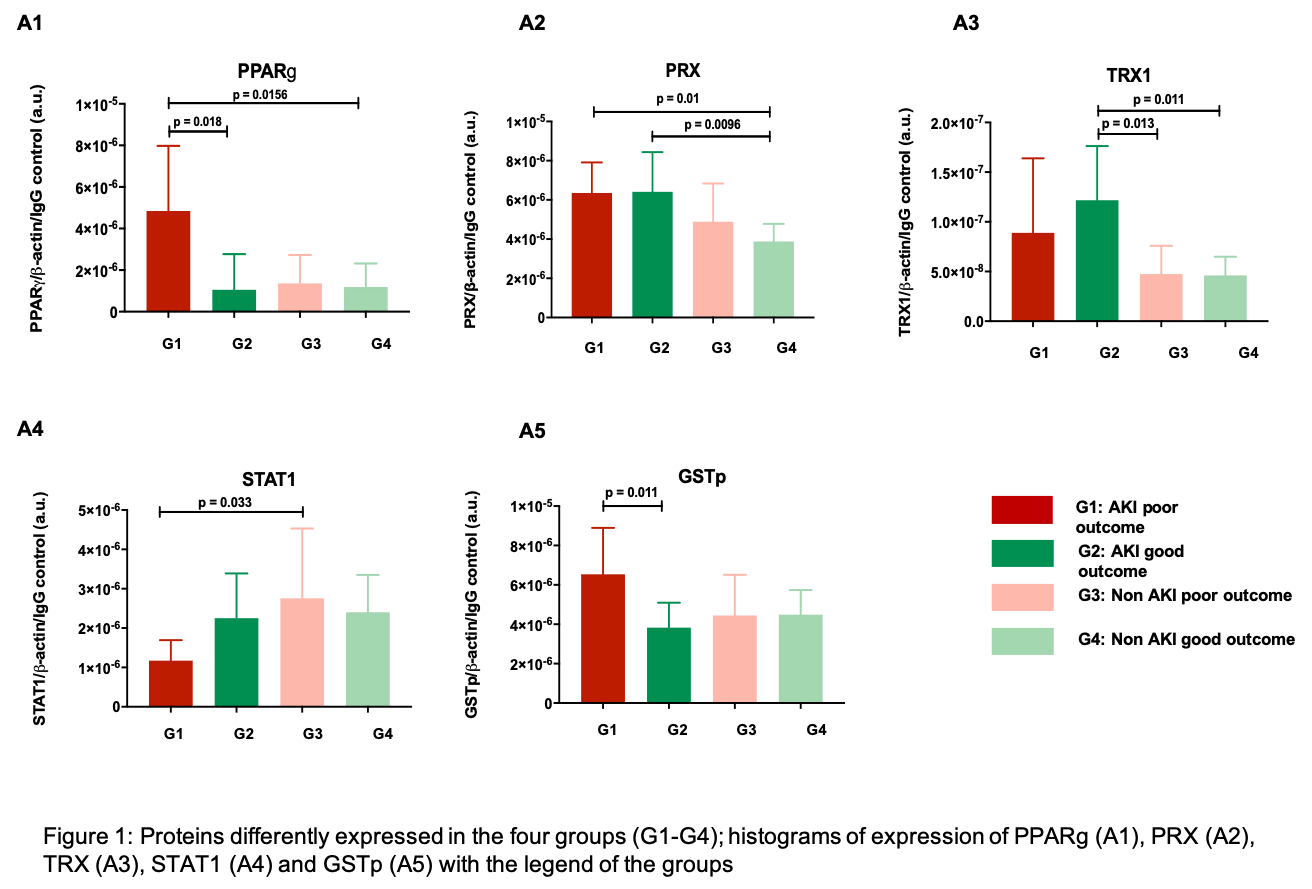Kidneys from AKI Donors with Poor Long-Term Outcomes Present an Impaired Protein Expression for Cellular Stress and Repair
1Nuffield Department of Surgical Sciences, Oxford University, Oxford, United Kingdom, 2Oxford Transplant Centre, Oxford, United Kingdom, 3Department of Vascular Surgery, Leiden University Medical Center (LUMC), Leiden, Netherlands
Meeting: 2020 American Transplant Congress
Abstract number: 197
Keywords: Kidney transplantation, Renal dysfunction, Renal injury, Renal ischemia
Session Information
Session Name: Basic: Ischemia Reperfusion & Organ Rehabilitation I
Session Type: Oral Abstract Session
Date: Saturday, May 30, 2020
Session Time: 3:15pm-4:45pm
 Presentation Time: 4:15pm-4:27pm
Presentation Time: 4:15pm-4:27pm
Location: Virtual
*Purpose: The utilization of kidneys from donors with acute kidney injury (AKI) is often limited by unpredictable post-transplantation outcomes. The aim of our study was to identify protein mediators implicated in either recovery or failure of these donor organs, subject to pre-donation acute ischemic stress.
*Methods: Forty kidney biopsies from donors with (20) and without (20) the incidence of AKI (KDIGO criteria) were selected from the QUOD biobank. Each group was then subdivided into further two groups; those that yielded poor outcomes after transplantation (1yr eGFR <45ml/min) and those that yielded good outcomes after transplantation (1yr eGRF≥45 ml/min). Tissue homogenates were analysed by western blot to assess how the levels of 17 pre-selected proteins varied across the groups; G1: AKI poor outcome (n=10), G2: AKI good outcome (n=10), G3: non-AKI poor outcome (n=9), G4: non-AKI good outcome (n=10).
*Results: Comparison of AKI versus non-AKI samples showed significantly reduced STAT1 (p=0.035) in comparison to higher TRX1 (p=0.001) and PRX3 (p=0.0005) in the AKI group. Samples from AKI kidneys with a poor outcome showed a four-fold increase in the levels of PPARγ and two-fold reduction of STAT1 compared to the other groups (p<0.05). On the contrary, antioxidant enzymes including TRX1 and PRX3 were increased in the AKI kidneys with a good outcome (p<0.05). An opposite trend was observed for the detoxifying enzyme GSTp which was significanlty increased in the AKI group with poor versus good outcome (p<0.05).
*Conclusions: The analysis of protein expression indicated a role for pathways of mitochondrial and cellular metabolism, pro-inflammatory, and cellular stress response in donor kidneys with AKI associated with poor allograft outcomes. The differences observed underline the importance of lipid metabolism (PPARγ), antioxidant and detoxifying enzymes (TRX1, PRX3 and GSTp) and inflammatory signals (STAT1) in the balance between recovery and failure on acutely injured kidneys accepted for transplantation.
To cite this abstract in AMA style:
Neri F, Faro MLo, Boffa C, Surik T, Kaisar M, Sharples EJ, Hunter JP, Lindeman J, Ploeg R. Kidneys from AKI Donors with Poor Long-Term Outcomes Present an Impaired Protein Expression for Cellular Stress and Repair [abstract]. Am J Transplant. 2020; 20 (suppl 3). https://atcmeetingabstracts.com/abstract/kidneys-from-aki-donors-with-poor-long-term-outcomes-present-an-impaired-protein-expression-for-cellular-stress-and-repair/. Accessed February 18, 2026.« Back to 2020 American Transplant Congress

